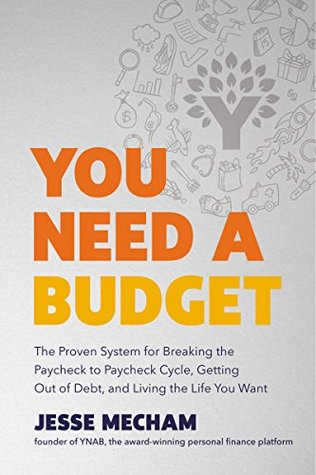More on this book
Community
Kindle Notes & Highlights
by
Jesse Mecham
Read between
January 1 - February 15, 2018
Rule One: Give Every Dollar a Job, is all about being proactive,
If guilt haunts you it’s usually because: 1. You know in your gut that a bigger priority needs more of your attention; or 2. You’re letting other people’s expectations of how you should live your life color your choices.
Forget future money; use today’s money to write your future.
YNAB’S PRIORITY CHEAT SHEET Knowing what to prioritize first doesn’t always come naturally, so at YNAB, we encourage following this clear Rule One hierarchy: • Take care of your immediate obligations first—a roof over your head, food for you and your family, and bills like electric and heat that mean bad things if you don’t pay them. Just setting aside money for these and knowing it’s there will help you be more secure and feel more secure. • Then move to the true expenses (more about these in Chapter 3). These are large, irregular expenses that surprise you (you know the feeling) but
...more
Most of your dealings with Rule Two will involve your infrequent expenses, and they generally fall into two camps: Predictable, and Unpredictable but Inevitable.
As I said earlier, start with the bills or expenses that always tend to knock you out when they arrive—insurance premiums, birthdays or holidays, big annual dues like summer camps or tuition.
big punches: perhaps they weren’t on your priority radar, but they usually do reflect your values, which are your budget’s driving force. While your priorities can actually change fairly quickly, your values are much more resilient. Sometimes we don’t even notice our values are guiding us. We just get the feeling that a certain decision is “the right thing to do,” or simply nonnegotiable.
Most of our reasons for wanting to quit budgeting stem from one core problem: perfection. When we feel we’re failing, it’s often because we’re pushing too hard for a perfect budget.
As long as you’re budgeting, you’re succeeding.
If you’re not happy with your budget, go back to the question you asked yourself in the Introduction: What do I want my money to do for me?


